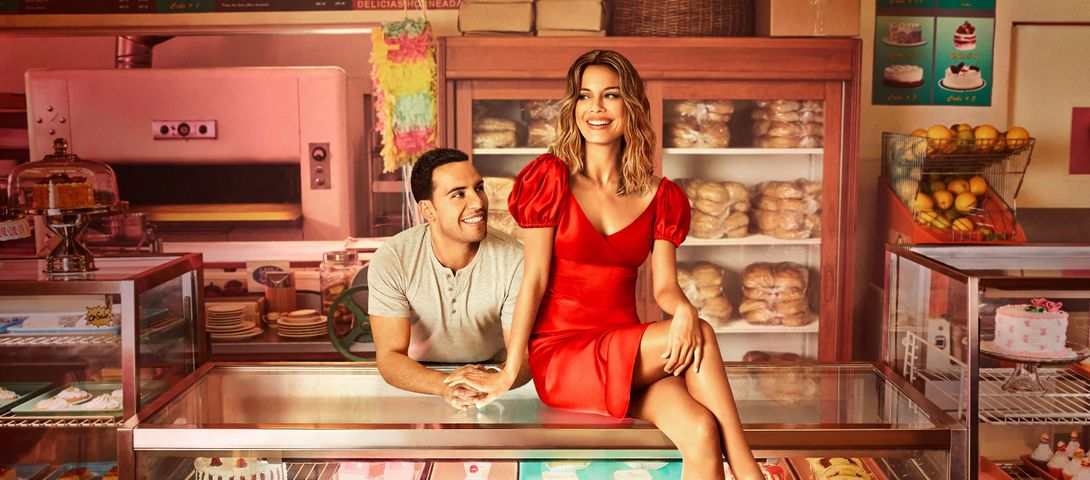There’s a lot of talk in The Baker and the Beauty about the “two worlds” our protagonist Daniel Garcia must manage. There’s his Latinx “world” in Little Havana. In it, he’s the oldest son of the humble Garcia family, living above the bakery he’ll one day inherit. The other “world” belongs to celebrity Noa Hamilton and her entourage. That one’s flush with funds, paparazzi, and skinny white folks. As the first season draws to a close, the two worlds seem set on a collision course with Daniel having to choose where he belongs.
Certainly, the difference between a collective and individualistic orientation is in full effect on the show and it’s one of the biggest divides we Latinxs must bridge. Before 2017’s Coco, I’d never watched anything where the value we place on family was seen as a positive. It had always been something to overcome, a needy, demanding family holding the ambitious individual back. Luckily, Latinx representation has come a long way and now we see much more nuanced portrayals of what it means to be in one of our tight-knit families.
On The Baker and the Beauty, that means we see the Garcias fight with and for each other every episode. Middle brother Mateo has to give up his recording session to work in the bakery but his dad eventually builds him a DIY studio when he realizes how serious Mateo is about music. Youngest sibling Natalie comes out as gay and even though her mother has a hard time accepting it, she never stops protecting her daughter. Father Rafael has always dreamed of owning his own cafe and his wife Mari pushes to do it even when he doubts himself. They’re a unit, for better or worse, but mostly for better.
In contrast, Noa is largely alone. We meet her mother and father but they’re not daily presences in her life and both cause her pain. Her real kin is her entourage with manager Lewis serving in the father-figure role. But Lewis is so high strung that, even with his cancer diagnosis, he remains the least sympathetic character on the show. Certainly, people you pay don’t and can’t provide the type of love the Garcias give each other. As Noa’s boyfriend, Daniel has to figure out how to balance his family obligations and keep up with Noa’s me-centered, white life, facing such tough questions as: should he drop his work at the bakery to go with Noa to Morroco?
And, perhaps more importantly, does he shift his ambitions from running the family business to becoming a food personality? In a recent episode, his dad Rafael lambasted that idea, calling Mateo’s years-long commitment to music “a dream” while labeling Daniel’s recent foray into food content “a fantasy.” It stung because of the truth behind it. Daniel’s ambition isn’t just new, it was Noa’s idea, an attempt to bring him closer to her world. It fits her ideal of success — fame, fortune, and status. But what happened to Daniel’s previous definition of “success” — being a meaningful part of his family, both its business and its relationships? And while Rafael is meaningfully pushing against Daniel’s shifting priorities, he is perhaps putting too much value in hard work. Success — whether in music or TV — is as much about your background as it is about talent and dedication.
Luckily, he exists in the world of The Baker and the Beauty, which sees the value in each of us. Noa may be the female romantic lead but the show hasn’t forgotten his ex Vanessa, the Latina real estate agent who proposed to Daniel after four years of dating in the series premiere (he said no). Even though she’s not right for Daniel, Vanessa is beautiful and smart and hardworking. She deserves love and success and the show allows her to have those things without predicating her happiness on Daniel’s or Noa’s. In fact, these two women, the round-the-way girl and the starlet, are equals in character and class even as they represent “two different worlds.”
The thing is, we Latinxs are used to living in “two worlds” (if not more!) as we navigate across our various cultures. As someone wiser than me said, we’re both 100% American and 100% Latinx all the time. Daniel’s case may be extreme but it’s not out of the ordinary and I, for one, am rooting for the “two worlds” talk to end and a more thoughtful exploration of what it means to be bicultural to begin. The Baker and the Beauty is certainly set up to do just that.

